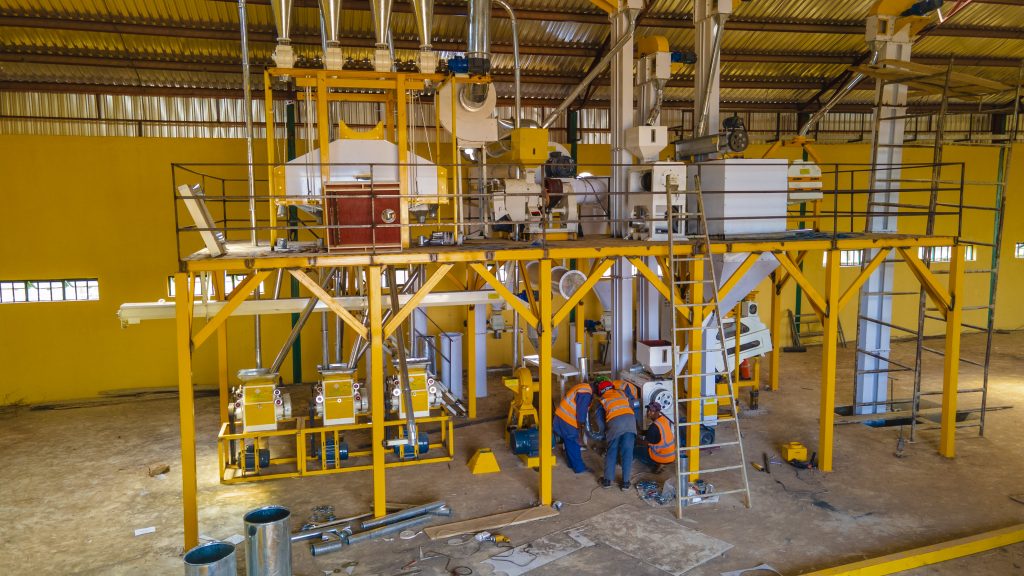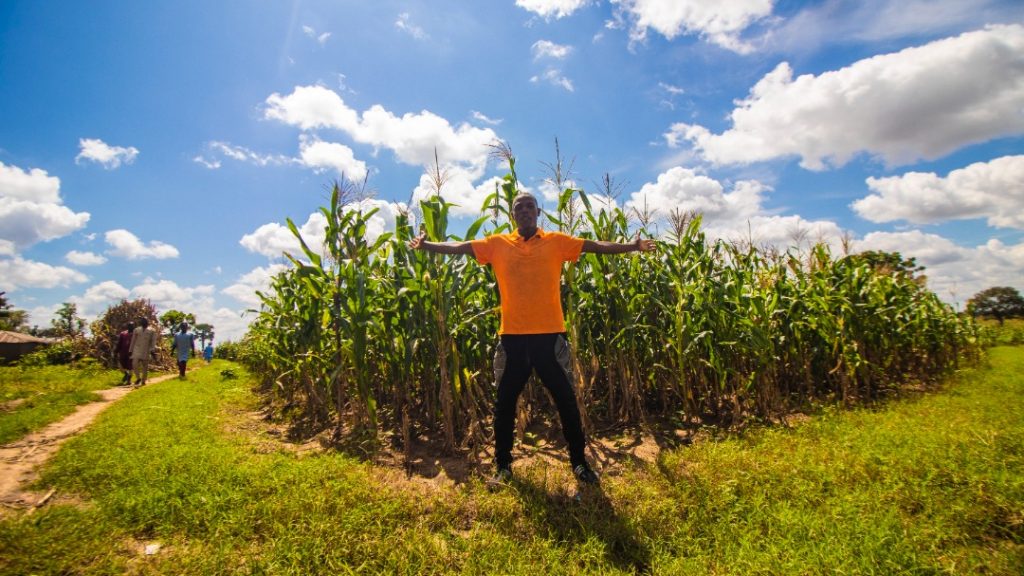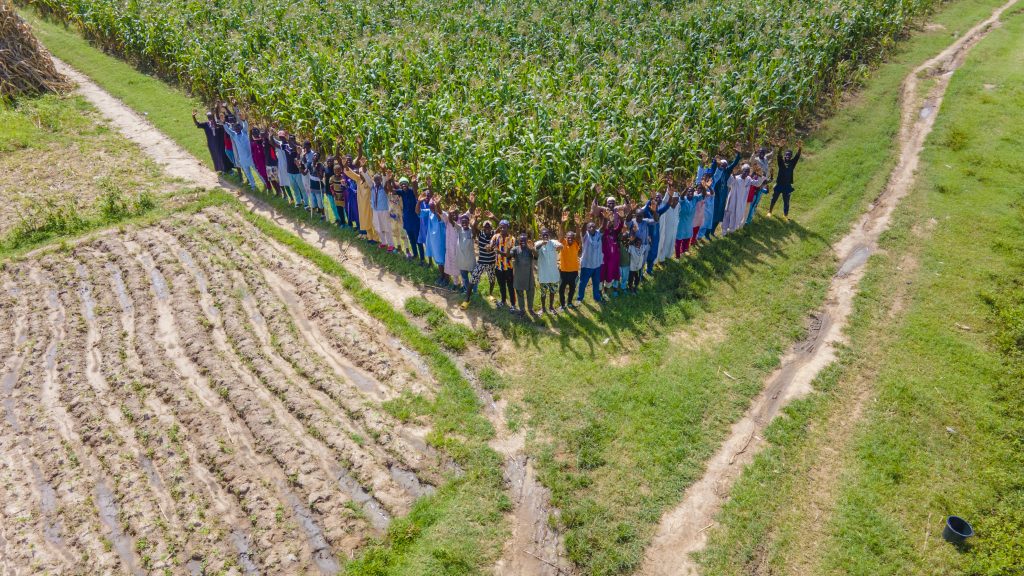By Aor Ikyaabo, Communication Specialist
Smallholder farmers in Africa experience high post-harvest food losses as a result of poor handling, poor packaging, and the lack of suitable storage facilities for their produce before it reaches the market. Low market prices and high labor costs often make it uneconomical for farmers to harvest all they produced, which commonly leads to farmers selling their products at lower prices to avoid spoilage.
Equipped with an $834,062 co-investment grant from the USAID-funded West Africa Trade & Investment Hub, Nalmaco, a Nigerian food, and processing company, is providing integrated agribusiness services within the maize and soybean value chain in Kaduna State, Nigeria. Operating since 1986, Nalmaco is one of the largest food processing companies in West Africa, with clients that include Nestle and Cadbury. Further, through this co-investment partnership, Nalmaco will support 2,000 smallholder farmers and increase their incomes. Nalmaco will source its raw materials from the smallholders directly, ensuring that they make income from the sales of their harvested produce, while also providing improved technological storage warehouses for the procured grains.

Leveraging the Trade Hub Grant, Nalmaco has completed a 15,000 metric tons (MT) capacity warehouse, procured a 2.5MT/hour maize milling plant capable of producing maize flour and grits, a 120MT/day industrial-scale grain cleaning plant, and a 70MT/day color sorting machine capable of eliminating mycotoxin contaminants in grains. This reduces the rejection rate to less than 1 percent by its premium off-takers, while solving the problem of obsolete warehousing facilities. This initiative will go a long way in keeping the harvested grains in top condition with proper aeration and ventilation. The grain cleaning plant will help in increasing cleaning capacity, making it possible to serve more customers simultaneously without a breakdown of the machine.
One of the smallholder farmers benefitting from Nalmaco’s project is twenty-eight-year-old Umar Abdullahi, a resident of Kurmin Malam Bawa in Soba Local Government Area of Kaduna State. Before his involvement with Nalmaco, Umar was incapable of financing his 0.5 hectares (ha) farm, with adequate agricultural inputs such as quality seed, fertilizer, and agrochemicals, and lacked the knowledge of Good Agronomic Practices (GAP).

“Initially, I thought of leaving farming entirely as a result of poor yield. But with the coming of the Nalmaco project, I was taught how to apply fertilizer with support from the extension agents who monitored my farm to ensure it was doing okay and was free from diseases and pest infection,” Umar shared. With the intervention of the project, Umar can now cultivate 2.5ha with adequate inputs received from the project due to his dedication and commitment. Whereas in previous years he could only harvest an average of 0.7-0.9MT from the 0.5ha, he has harvested 10MT from the 2.5ha piece of land.
Umar has also been able to form a farmer group known as the “Kurmin Malam Bawa Farmers Association,” where he is their lead farmer. This farmer group, or farmer cooperative, empowers them to seek government assistance and to collaborate to solve common challenges within their communities. From the supervision of the agricultural extension/advisory team, Umar’s farm is doing very well, with his farm poised to produce the anticipated maximum yield of at least 4MT per hectare.

With Nalmaco’s intervention, a total of 1,600 jobs have been created for farmers like Umar, as part of the project’s objective of engaging 2,000 farmers to cultivate 6,000 hectares of land. In the near future, Nalmaco is committed to continuing to support smallholder farmers who plan to engage in the large-scale production and processing of grains that have very large markets in Africa—including maize flour, soybeans, and rice.

